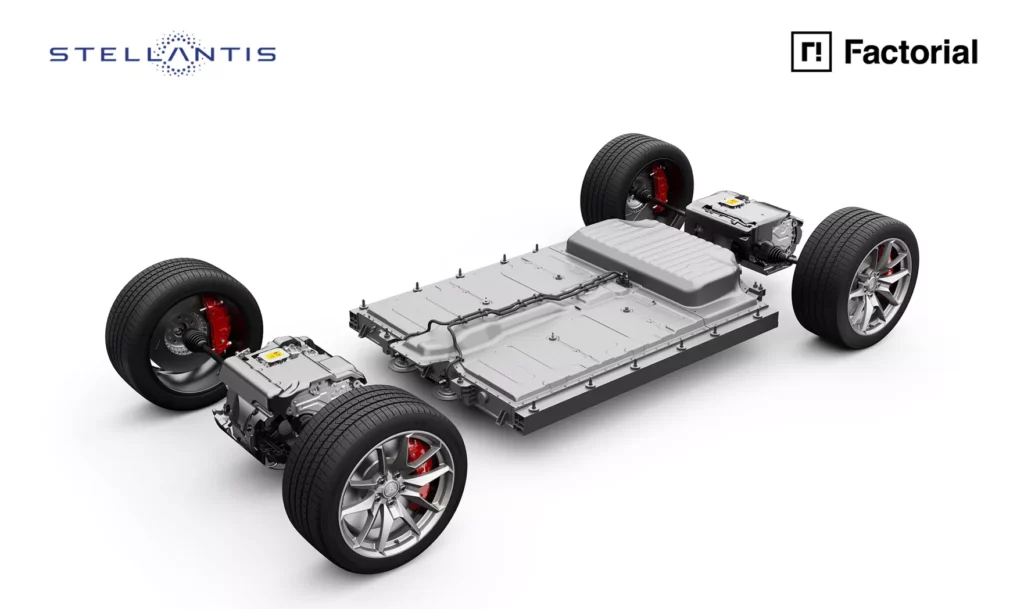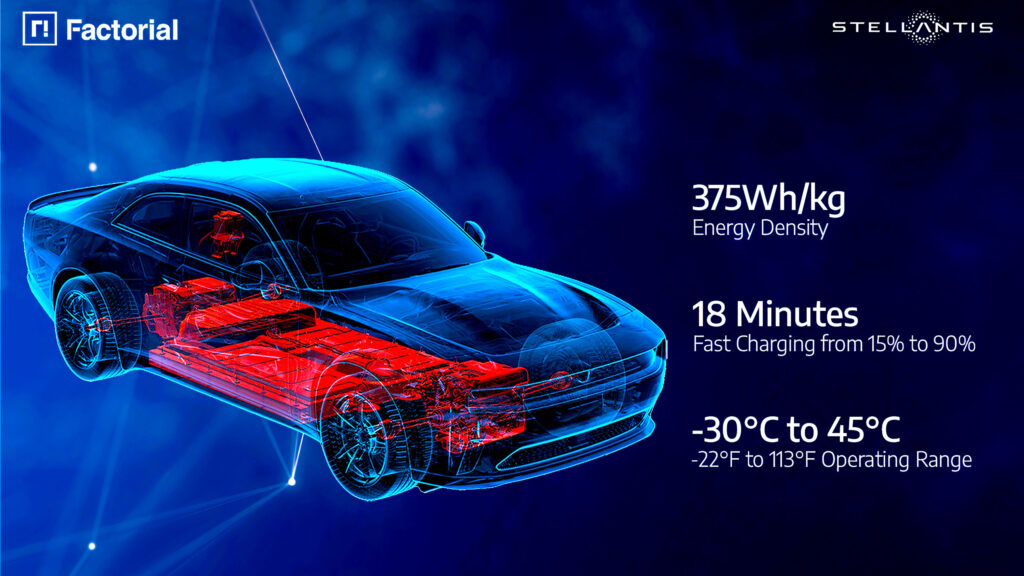The technology offers more range at the same weight and power, along with better charging rates

- Dodge and Factorial begin solid-state battery tests with production aimed for after 2028.
- The batteries promise faster charging speeds, higher energy density, and better range.
- Factorial’s tech also offers improved performance even in extreme cold temperatures.
Stellantis, and especially its Dodge brand, could really use a win right now. Enter solid-state batteries, the shiny new tech that could provide just the boost they need. Factorial, the company working on these next-gen batteries, has teamed up with Dodge to test them in the real world. If everything goes according to plan, Dodge might roll out vehicles with this technology between 2028 and 2032.
More: GM’s Secret Battery Breakthrough Could Slash EV Costs
The two companies have been working together since 2021, but this marks the first time Dodge will test prototypes on public roads. Starting in 2026, they’ll begin rolling out a fleet of Chargers equipped with Factorial’s solid-state batteries to work out the kinks and fine-tune all the details.
A Milestone for Cell Performance
“What happened with Stellantis is a very important milestone for cell performance validation,” Factorial CEO Siyu Huang told Autonews. “It’s not just about higher energy density, it’s about cycle life, and about fast charging. Above all, this is the first full-blown validation that automakers have shared.” The potential benefits are widespread and vital for the EV movement.
For instance, solid-state batteries offer faster charging speeds. The batteries that Dodge will test offer 375 watt-hours per kilogram, and can go from 15 percent to 90 percent full in just 18 minutes. In addition, they’re more energy-dense. In practice, that means more range in a solid-state battery compared to a conventional one.
Lighter Batteries, More Range, and Cold Weather Performance

On the flip side, an automaker could, in theory, offer a smaller, lighter battery while still offering the kind of range most EVs do today. Factorial says it’s also made progress on cold-weather solid-state battery tech. Finally, they’re safer too since they use a solid, non-flammable electrolyte. “Not only can we deliver a strong performance at room temperature but also at temperatures as low as -30 degrees Celsius. We weren’t able to do this until a few months’ ago,” she said.
Also: A Simple Button Sequence Could Save Your Charger And Challenger From Thieves
Notably, Factorial isn’t working with Stellantis alone. It’s also tied up with Kia, Hyundai, and Mercedes-Benz. The German automaker is also testing these batteries on the road as of February of this year.
Suffice it to say, all of these automakers will benefit as soon as solid-state batteries become the norm. Additional range, better charging rates, and potential weight reduction are all good reasons to get excited. Hopefully, testing goes well and we see this technology develop sooner rather than later.

#Stellantis #Takes #SolidState #Batteries #Lab #Road #Charger


